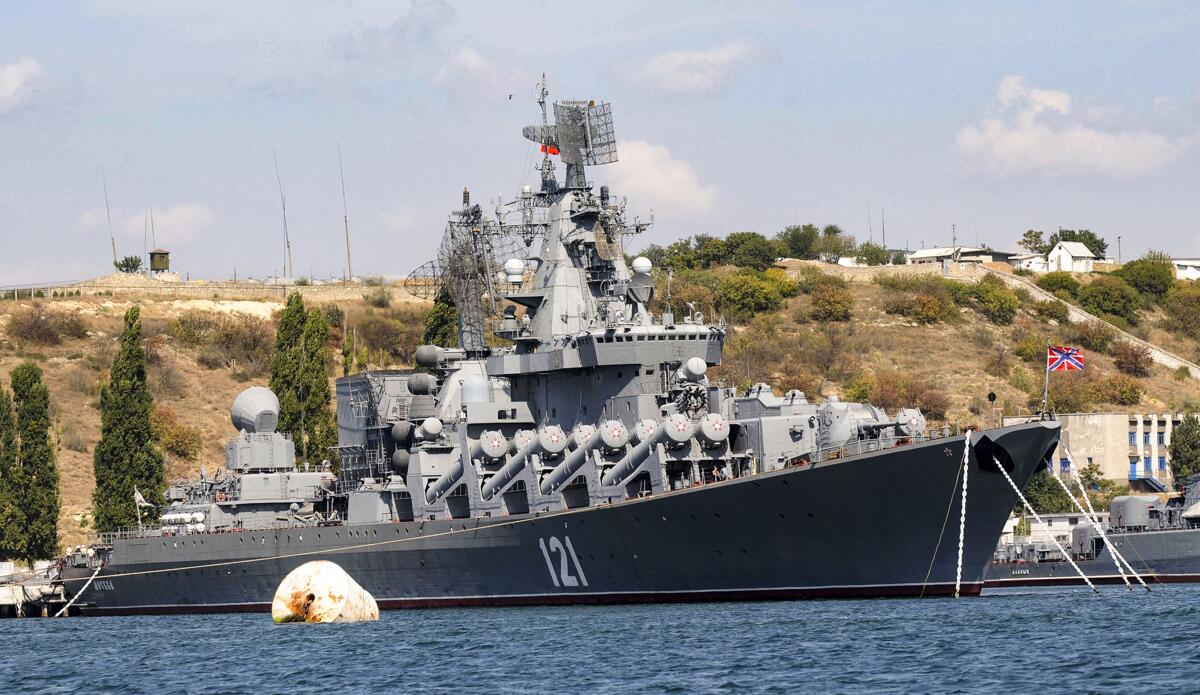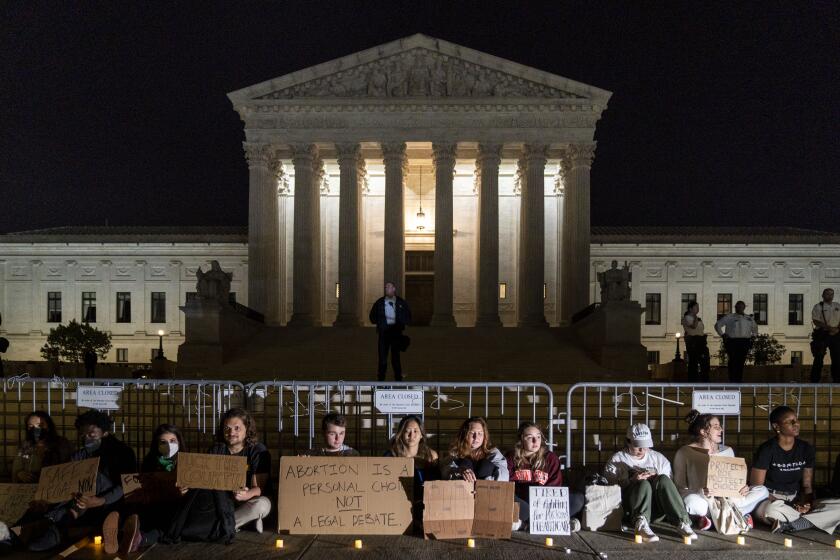Premature self-congratulation won’t help the U.S. in Ukraine

WASHINGTON — To hear the Biden administration talk, the war in Ukraine is nearly won — and the United States wants some of the credit for winning it.
“Russia is failing. Ukraine is succeeding,” Secretary of State Antony J. Blinken said last month.
Defense Secretary Lloyd J. Austin III went a step further. The United States isn’t merely helping Ukraine win, he said; it’s using the war to undermine Russia’s status as a world power.
A Supreme Court decision overturning Roe v. Wade would unsettle politics nationwide, but especially in a few key states.
“We want to see Russia weakened to the degree that it can’t do the kind of things that it has done in invading Ukraine,” Austin said.
Last week, U.S. officials disclosed that American intelligence helped Ukrainian forces kill as many as 12 Russian generals and sink the flagship of Russia’s Black Sea fleet — humiliating setbacks for Moscow’s once-proud armed forces.
It’s good news, of course, that Ukraine is holding its own against Russia’s invasion. And yes, the United States and its allies deserve credit for helping the Kyiv government survive.
But several things are wrong with this picture.
For one thing, Ukraine hasn’t quite won yet. The chest-thumping is premature.
Russian forces are close to taking full control of the port city of Mariupol; that will give it a prize it has long sought: a “land bridge” between the Crimean peninsula and Russia. The Russians could also expand the territory they hold in eastern Ukraine, where fierce fighting is underway. If that happens, Kyiv’s “victory” could soon look less impressive.
For another, it’s unusual for U.S. officials to claim credit, even anonymously, for successful intelligence sharing. The problem isn’t that they’re revealing state secrets; Russia already knew the U.S. was helping the Ukrainians with targeting.
The problem is that President Vladimir Putin has tried to rally support — among both his own people and those of other countries — by portraying Russia as the victim of a U.S. plot. We just helped him make his case.
“The war in Ukraine does not have anything to do with Ukraine,” a commentary shown on Russian state television claimed last week. “The war in Ukraine was designed to cause regime change in Moscow.”
The commentator was Tucker Carlson of Fox News.
More important, the United States has quietly escalated its goals in the war but without much clarity about exactly what they are.
That’s a phenomenon known as “mission creep,” and it’s a recipe for trouble. Just ask former President George W. Bush, who led the United States into overambitious wars in Iraq and Afghanistan.
“You don’t want to create pressure on yourself to do more than is wise to do,” Richard Haass of the Council on Foreign Relations, a top State Department official in the Bush administration, told me.
One reason the U.S.-led alliance in support of Ukraine has held together so impressively is that its initial goal was clear and broadly shared: helping the Kyiv government defend itself.
Now the goals are getting blurry, and that’s beginning to create division among U.S. allies.
Turkish Foreign Minister Mevlut Cavusoglu complained recently that some members of the North Atlantic Treaty Organization “want the war to continue. … They want Russia to become weaker,” an apparent reference to Austin’s announced aims.
Meanwhile, Britain’s combative foreign secretary, Liz Truss, said her country is committed “to push Russia out of the whole of Ukraine,” a more ambitious goal than even the Biden administration has embraced.
“I don’t think we have shared definitions of success,” Haass said. “That’s a problem.”
Expanding the goals of the war could stiffen Putin’s determination to keep fighting or push him toward escalating, perhaps by resorting to chemical or nuclear weapons.
“Austin’s statement reinforces Putin’s belief that this is an existential threat,” Haass warned. “You don’t want to push him into a corner any smaller than the one he’s already painted himself into.”
Some day, Russia and Ukraine will decide to stop fighting. At that point, there will need to be cease-fire talks and, perhaps, negotiations toward a peace settlement. U.S. diplomats may even want to dust off the concept of “offramps” — offers to make it easier for Russia to compromise.
And once the war is over, the United States and Russia will still need to deal with each other on a broad range of issues.
Escalating goals and premature claims of victory won’t help us get there any faster.
In 1901, President Theodore Roosevelt described his foreign policy as “Speak softly and carry a big stick.”
Last month, President Biden said he wanted to use the same approach in Ukraine. “We will speak softly and carry a large Javelin,” he said.
This would be a good time for him to take his own advice.
More to Read
Get the L.A. Times Politics newsletter
Deeply reported insights into legislation, politics and policy from Sacramento, Washington and beyond. In your inbox three times per week.
You may occasionally receive promotional content from the Los Angeles Times.












